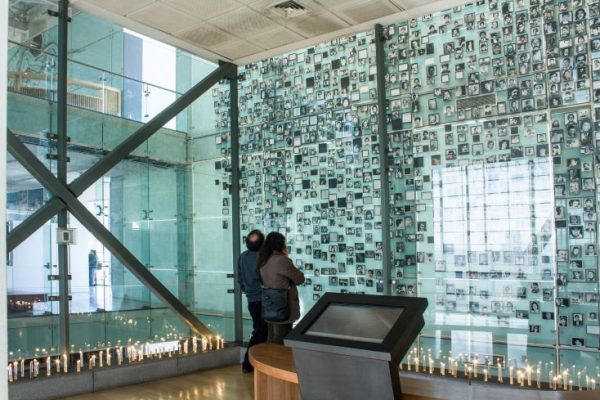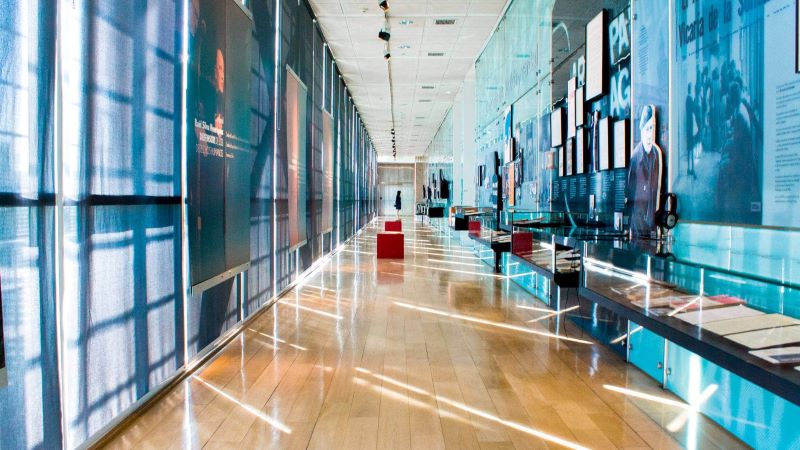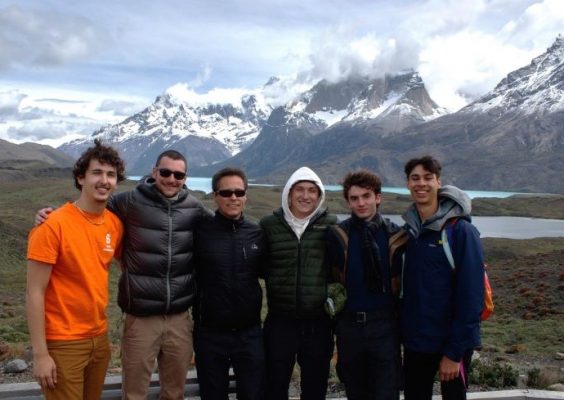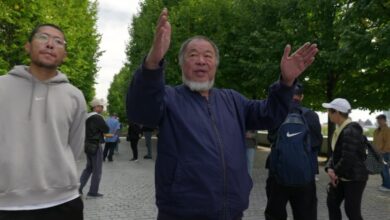Lender Global Program Recruiting Students for Next Research Fellowships in Santiago, Chile — Syracuse University News

Syracuse University’s Lender Center for Social Justice and Syracuse Abroad have chosen the Santiago, Chile, program as the next location to host a new globally focused student research initiative.
The Lender Global program was launched last year to offer students innovative research opportunities to examine social justice issues from a global perspective. The first cohort is studying environmental issues at the Syracuse Abroad center in London now. In Santiago, student fellows will study the impact and consequences of the Augusto Pinochet dictatorship in Chile, which lasted from 1973 to 1990, during which more than 3,000 people died or disappeared, 200,000 suffered exile and 27,000 were tortured.
Three student fellowships will be awarded to students who plan to study abroad in Santiago during the 2025-26 academic year. All students who have been accepted to study there via the OrangeAbroad portal will be invited to express interest in the fellowship project.
Information Session
An online information session about the program is scheduled Thursday, Jan. 30, from 12:30 to 1:15 p.m. ET, with Mauricio Paredes, Santiago Center director. Students. interested in studying Spanish, human rights, engineering and/or collective memory in Santiago can register for the session via this link.
Applications for Fall 2025 semester Syracuse Abroad programs are currently open and have a deadline of March 15. Applications for Spring 2026 abroad programs open on May 15.
Redress, Prevention
Student fellows will take courses about that period in Chilean history and will also work on a hands-on project at a memorial museum. They will also get involved with community members, share their new findings, enhance how victims are remembered and gain an understanding of how commemorative education can help redress and prevent human rights abuses.
Mauricio Paredes
The initiative will be led by Syracuse Santiago Director Mauricio Paredes, an expert on Chilean internment camps, nationalism and U.S. involvement in Chilean politics who teaches courses about human rights, political memory and Latin American dictatorships. He will teach the course, “Dictatorships, Human Rights and Historical Memory in Chile and the Southern Cone” and lead examinations of how the country has rebuilt art, culture and institutions since 1990. Paredes will also guide student fellows in enhancing a current display of victims of that time at Santiago’s Museo de la Memoria y los Derechos Humanos (Museum of Memory and Human Rights). The museum documents the human rights violations committed by the State of Chile between 1973 and 1990 and provides spaces to honor and remember those victims and their families.
Parades’ viewpoint on the topic is unique. He is not only a scholar of the Pinochet dictatorship and the outcomes of that era, but was also a political prisoner of that government, so understands firsthand the impacts of political violence and the importance of social justice.
“One of the most important aspects of this project is its potential to demonstrate that abolishing democracy and installing terror as a means of accomplishing political goals will affect not only one’s political enemies but can also put everyone’s safety and integrity at risk,” Paredes says. “[This project] can serve as a reminder that once terror is unleashed, nobody is safe.”

Students chosen for Lender Global’s Santiago 2025-26 fellowship will conduct exhibit work at the Museum of Memory and Human Rights. (Photo courtesy Museum of Memory and Human Rights)
Specialized Interests
Due to its unique nature, students who have specialized capabilities and interests that align with the project are encouraged to apply.
They include:
- A Spanish-speaking fellow to conduct an archival project exploring motivations for collateral killings and work with local collections and organizations to understand what happened to victims of the dictatorship (Fall 2025)
- An engineering fellow to work with a local technician to enhance a lighting system for the museum’s exhibit of victims’ photographs (Spring 2026)
- A design-centric fellow to develop materials that will be used to share research findings with broader audiences, comprising an enhanced display at the museum (and for later exhibit on the Syracuse University campus) (Spring 2026)

A group of students studying at the Syracuse Santiago Center in 2023 visited the high peaks of Patagonia while there. Center Director Mauricio Paredes, third from left, accompanied them. (Photo courtesy Syracuse Abroad)
Kendall Phillips, Lender Center director, says the Santiago program’s location and structure provide students a rare opportunity in the field of social justice studies to learn about the victims of political violence and mass death and get involved with the communities that experienced those atrocities. “This is such a powerful project and it brings together many of the key topics the Lender Center has engaged with in the past. It is exactly the kind of global perspective on social justice we seek to foster with the Lender Global partnership,” he says.
Source link

